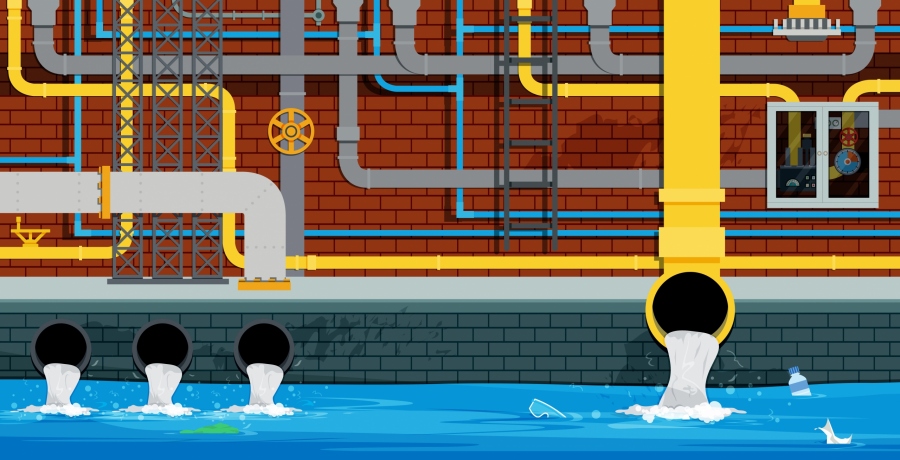Water is a vital resource that sustains life, ecosystems, and economic activities. Investing in water works is crucial to ensure access to clean water, manage wastewater, and protect water resources for future generations. This topic explores the significance of investing in water infrastructure, technologies, and management systems. By unlocking sustainable solutions, we can address water scarcity, improve water quality, and build resilient communities that thrive in the face of global water challenges.
1. Infrastructure Upgrades
Infrastructure upgrades in the waterworks sector encompass various improvements to aging infrastructure, including pipelines, treatment plants, and distribution systems. These upgrades aim to enhance efficiency, reduce water losses, and ensure a reliable water supply for communities. Innovative construction equipment is crucial in this process, particularly in the water and sewer industry.
Tools such as diamond blades, valve exercisers, bevelling attachments, and hand-held and walk-behind saws facilitate infrastructure upgrading. The equipment helps cut and shape materials, maintain valves, and execute precise tasks. Utilizing such water works equipment can significantly enhance the efficiency and effectiveness of infrastructure upgrades, ultimately benefiting communities and their water systems.
2. Water Conservation Measures
Water conservation measures encompass a range of actions to promote responsible water use, reduce strain on water demand, and preserve water resources for future generations. That includes implementing efficient irrigation systems, such as drip irrigation or smart irrigation controllers, which optimize water usage in landscaping and agriculture. Water-saving fixtures like low-flow toilets and faucets help minimize water consumption in homes and commercial buildings.
Public awareness campaigns educate individuals and communities about water conservation practices. Investing in water works also involves upgrading infrastructure to support these measures, such as installing water meters and leak detection systems. Implementing these conservation measures helps safeguard water resources, mitigate water scarcity, and foster sustainable water management.
3. Wastewater Treatment and Reuse
Wastewater treatment and reuse play a significant role in sustainable water management. It involves the application of advanced technologies to treat wastewater, making it safe for reuse in various applications. Tools and equipment such as membrane filtration systems, UV disinfection, and biological treatment processes help to efficiently and effectively treat wastewater.

Treating and reusing wastewater reduces the strain on freshwater sources, ensuring enhanced water availability. The practice also minimizes the discharge of pollutants into the environment, protecting ecosystems and promoting environmental sustainability. An excellent example of wastewater reuse is using treated wastewater for irrigation in agriculture or industrial processes and conserving freshwater resources for other essential uses.
4. Climate Resilient Projects
Climate-resilient projects in waterworks involve the development of infrastructure and measures to adapt to changing weather patterns and mitigate the impacts of climate change on water resources. These projects are crucial for ensuring the availability and reliability of water supply in the face of climate-related challenges such as droughts, floods, and sea-level rise.
Communities, businesses, and ecosystems benefit from climate-resilient water works as they provide improved water management, reduced vulnerability to extreme weather events, and enhanced water resource sustainability. Examples of such projects include constructing flood management systems, stormwater retention facilities, and groundwater recharge projects. Tools and equipment used in these projects include flood barriers, stormwater detention ponds, and groundwater monitoring systems.
5. Public-Private Partnerships
Public-private partnerships (PPPs) in waterworks investments foster innovation, efficiency, and financial sustainability. PPPs can effectively address water challenges by bringing together the expertise, resources, and perspectives of governments, private entities, and communities. These partnerships enable the development of high-quality and affordable water infrastructure, such as treatment plants and distribution systems, while ensuring efficient service delivery.
PPPs promote knowledge sharing, technology transfer, and collaborative decision-making, leading to more sustainable and resilient water management practices. For example, innovative tools and equipment, like magnetic utility hole cover lifting systems, can help to improve maintenance and inspection processes.
Takeaway
Investing in water works is crucial for unlocking sustainable solutions and securing a better future. Collaborating with a company offering adequate water works solutions and modern equipment is pivotal in fostering innovation, efficiency, and financial viability. By joining forces, investors and water works companies can address water challenges effectively, ensure the availability of clean water, and build resilient infrastructure for a sustainable and prosperous future.

